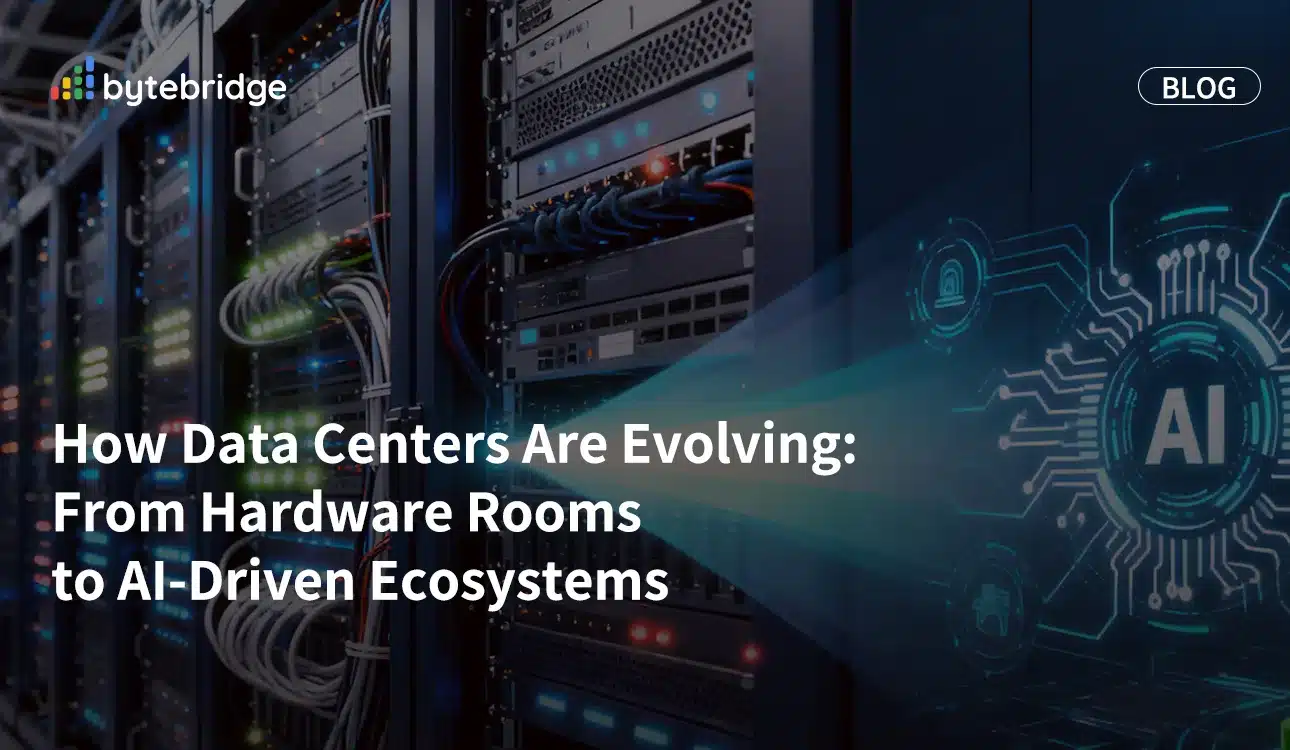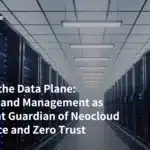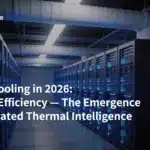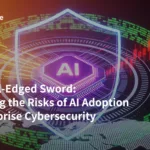Over the past few years, we’ve seen a major shift in how businesses think about their data centers. Today, the modern data center isn’t just a room full of hardware anymore; it’s an intelligent ecosystem where AI, automation, and sustainability come together to drive digital transformation.
I’ve witnessed this evolution unfold in real time, and what’s happening in 2025 marks one of the most exciting chapters yet.
1. AI-Ready Infrastructure Is Redefining the Core
The explosion of AI workloads is rewriting the rules of data center design. GPU-dense architectures, high-bandwidth fabrics, and hybrid cooling systems are now the foundation for large-scale model training and inference.
We’re no longer just adding compute; we’re rethinking thermals, networking, and power delivery to sustain racks exceeding 80 to 100 kW. I’ve seen teams transition from legacy air-cooled setups to hybrid liquid-air systems, and the difference in efficiency and performance is remarkable.
AI-readiness is no longer a luxury. Organizations that modernize now are preparing themselves for tomorrow’s data-intensive demands without a complete rebuild.
2. Sustainability Has Become an Engineering Mandate
A few years ago, “green IT” was a nice-to-have. Today, it’s part of every serious conversation. Clients aren’t just asking for power savings; they’re demanding measurable reductions in carbon footprint and smarter ways to reuse energy.
From rear-door heat exchangers that reclaim waste heat to integrating renewables into backup systems, sustainability has become an engineering discipline. It challenges us to design solutions that are both efficient and responsible.
Efficiency is now synonymous with competitiveness. Reducing energy consumption directly lowers OPEX, which means sustainability isn’t just good for the planet—it’s good business.
3. The Edge Is Expanding the Boundaries
Latency is the new downtime. With real-time analytics, IoT, and AI inference moving closer to where data is generated, edge computing is accelerating fast.
In the past, everything was centralized. Now, we’re deploying micro data centers and modular facilities at the edge to deliver faster, more reliable performance. This decentralization is reshaping network topologies and redefining infrastructure management. It’s also opening new opportunities in regions where connectivity and availability are mission-critical.
The edge, in many ways, is how global becomes local.
4. Automation Is Empowering Leaner, Smarter Operations
The complexity of modern infrastructure means we can’t rely on manual monitoring anymore. Predictive maintenance, AI-driven analytics, and digital twins are helping operators anticipate issues before they occur.
Automation has freed up entire IT teams, allowing engineers to focus on innovation instead of firefighting. From automated provisioning to adaptive cooling control, the data center is quietly becoming self-aware.
And that’s not science fiction. It’s the reality of modern operations.
The Bigger Picture
The data center used to support the business. Now, it is the business.
Enterprises that embrace AI-ready, sustainable, and automated ecosystems will not only process data faster but also make smarter, more informed decisions.
At ByteBridge, we’re proud to be part of this transformation, helping clients bridge the gap between traditional infrastructure and intelligent, globally scalable systems.
The data center of the future isn’t defined by walls, cables, or servers. It’s defined by how intelligently it connects people, data, and ideas.
Call to Action
If your infrastructure still looks the same as it did five years ago, it’s time to reimagine what’s possible. The future of data centers isn’t coming—it’s already here.

About The Author
Madhu Uradi
Madhu has a solid experience in networking and systems and works as a systems engineer at ByteBridge. With certifications in CCNP and JNCIA, his areas of expertise are Data Center, Virtualization, and Wireless. In order to satisfy the evolving needs of modern businesses, Madhu is committed to promoting innovation and offering solutions that are value-driven.






